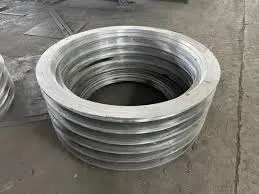- Afrikaans
- Albanian
- Amharic
- Arabic
- Armenian
- Azerbaijani
- Basque
- Belarusian
- Bengali
- Bosnian
- Bulgarian
- Catalan
- Cebuano
- China
- China (Taiwan)
- Corsican
- Croatian
- Czech
- Danish
- Dutch
- English
- Esperanto
- Estonian
- Finnish
- French
- Frisian
- Galician
- Georgian
- German
- Greek
- Gujarati
- Haitian Creole
- hausa
- hawaiian
- Hebrew
- Hindi
- Miao
- Hungarian
- Icelandic
- igbo
- Indonesian
- irish
- Italian
- Japanese
- Javanese
- Kannada
- kazakh
- Khmer
- Rwandese
- Korean
- Kurdish
- Kyrgyz
- Lao
- Latin
- Latvian
- Lithuanian
- Luxembourgish
- Macedonian
- Malgashi
- Malay
- Malayalam
- Maltese
- Maori
- Marathi
- Mongolian
- Myanmar
- Nepali
- Norwegian
- Norwegian
- Occitan
- Pashto
- Persian
- Polish
- Portuguese
- Punjabi
- Romanian
- Russian
- Samoan
- Scottish Gaelic
- Serbian
- Sesotho
- Shona
- Sindhi
- Sinhala
- Slovak
- Slovenian
- Somali
- Spanish
- Sundanese
- Swahili
- Swedish
- Tagalog
- Tajik
- Tamil
- Tatar
- Telugu
- Thai
- Turkish
- Turkmen
- Ukrainian
- Urdu
- Uighur
- Uzbek
- Vietnamese
- Welsh
- Bantu
- Yiddish
- Yoruba
- Zulu
Aug . 14, 2024 02:28 Back to list
Custom Precision Components Production for Various Industries by Leading Manufacturers
The Role of Machining Parts Manufacturers in Modern Industries
In today's rapidly evolving industrial landscape, the importance of precision-engineered components cannot be overstated. Machining parts manufacturers play a crucial role in supplying high-quality parts that meet the stringent requirements of various applications ranging from aerospace to automotive and medical devices. This article delves into the significance of these manufacturers, the processes they employ, and the future of machining in the industry.
Machining is a subtractive manufacturing process where material is removed from a solid block to create a desired shape. This process encompasses various methods, including turning, milling, drilling, and grinding, enabling the production of complex geometries with outstanding accuracy. Machining parts manufacturers utilize advanced Computer Numeric Control (CNC) machines to achieve precision that is critical in sectors like aerospace, where even the slightest deviation can lead to catastrophic failures.
One of the key advantages of having specialized machining parts manufacturers is their ability to produce custom components tailored to specific requirements. Many industries are moving towards bespoke solutions to enhance performance, reduce weight, and improve overall functionality in their products. For instance, aerospace manufacturers often require intricate parts made of lightweight materials like titanium or high-strength aluminum alloys. Machining parts manufacturers can leverage their expertise and advanced equipment to develop bespoke solutions that fit these demanding criteria.
Quality control is another critical aspect of machining parts manufacturing. Manufacturers often implement rigorous inspection protocols, using sophisticated tools such as Coordinate Measuring Machines (CMM) and laser scanning technology to ensure that each part meets the required specifications. This commitment to quality is essential, particularly in high-stakes industries where safety and reliability are paramount. The adoption of quality management systems, such as ISO 9001, has further standardized processes, guaranteeing that customers receive parts that meet international standards.
machining parts manufacturer

As industries continue to adopt new technologies, machining parts manufacturers are also embracing advancements such as additive manufacturing (3D printing) and automation. These technologies allow manufacturers to streamline production processes, reduce lead times, and minimize waste. For instance, integrating robotics into machining operations can enhance efficiency by allowing for continuous operation and reducing human error. This evolution in manufacturing practices not only leads to cost savings but also positions manufacturers to be competitive in an increasingly global market.
Sustainability is becoming an ever-pressing concern in manufacturing, and machining parts manufacturers are no exception. Many companies are actively seeking ways to minimize their environmental impact by adopting sustainable practices. This might involve optimizing machining processes to reduce energy consumption, recycling scrap material, or using eco-friendly cutting fluids. As consumers and industries alike gravitate towards sustainability, manufacturers that prioritize these efforts may find themselves with a competitive edge.
Looking toward the future, the machining parts manufacturing sector is set to undergo significant transformations driven by digitalization and Industry 4.0 principles. The integration of the Internet of Things (IoT) into manufacturing equipment allows for real-time monitoring and data analysis, leading to improved predictive maintenance and shorter downtimes. Furthermore, machine learning algorithms can analyze performance data to optimize machining processes, leading to enhanced productivity and efficiency.
In conclusion, machining parts manufacturers are integral to the success of a multitude of modern industries. Their ability to produce high-quality, precision-engineered components tailored to specific needs cannot be overlooked. With the ongoing advancements in technology and a growing emphasis on sustainability, these manufacturers are poised to lead the charge towards a more efficient, reliable, and eco-friendly manufacturing landscape. As we continue to embrace innovation, the role of machining parts manufacturers will only become more vital in the quest for superior products and solutions.
-
8mm Thin-Walled Cast Steel Manhole Cover Pallet Bottom Ring | Durable
NewsAug.04,2025
-
Premium Cast Iron Water Main Pipe: Durable, Corrosion-Resistant
NewsAug.03,2025
-
Durable Cast Iron Water Mains | AI-Optimized Systems
NewsAug.02,2025
-
High-Efficiency Propane Boiler for Baseboard Heat | Save Energy
NewsAug.01,2025
-
Premium Source Suppliers for Various Gray Iron Castings
NewsJul.31,2025
-
Durable Cast Iron Water Main Pipes | Long-Lasting
NewsJul.31,2025


